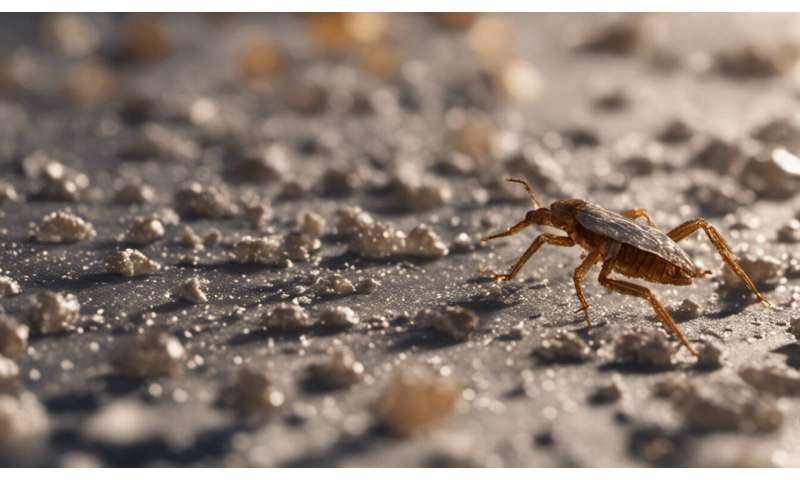Coronavirus: how to help children through isolation and lockdown

The UK has become the latest country to close schools in a bid to slow down the spread of the novel coronavirus. This is a game changer for families, displacing children from friends, learning and their school community. To help them through what could be months of isolation and potentially lockdown, we need to consider how this new world looks and feels to them.
Unfortunately we cannot just soothe the situation away and protect a little bubble of normality. The stakes are too high, and we need children to take the key messages seriously. As any parent knows, it isn’t exactly easy to get them to wash their hands and not touch their faces. But there are things we can do to make the situation easier for them, and get them to cooperate.
Children are often soothed by touch. Touch calms the heart rate, and allows children to feel secure, so we can expect them to be more clingy and in need of affection at such an unsettling time. But if a parent has a cough and can’t be physically close to their children—even teenagers—this will be exceptionally hard for them to cope with.
It is therefore important to maximise physical contact where possible. Encourage affection where it is safe to do so and keep them topped up with the security of warm hugs from those that can offer them. Where it’s not possible, you could treasure their need for physical contact by taking their requests for hugs sincerely and “banking” them in a special jar with homemade tokens.
In the meantime, ask them how you can help them feel better. Children are unique and resourceful, so it’s important to keep the communication open. Even if there is no easy answer, they will hear that you have noticed them in the midst of the crisis. Be aware that children and young people will be hearing news broadcasts and adult conversations—they know when we are worried, and they will be hearing stories of death everyday, which is deeply unsettling.
If they have direct questions about the pandemic, it is best to answer honestly, but also positively. You can tell them that: “Some people have died, yes, but not children. And washing our hands and staying at home is helping all of us stay safe.” Diverting their attention is a powerful alternative. You can use games, cooking activities, stories and conversation starters to take the attention away from frightening talk of the virus.
Keeping a routine
Remember that children’s sense of time can be quite different from adults, with hours and days feeling much longer. If in isolation, keep a tally on when you may be able to come out and let them tick off the days on a chart.
Also make sure to keep a routine. Children and young people’s lives are punctuated with school times, home time, meal times and bed times. Don’t let this go out the window. Keep a schedule of daily activities, including reading and maths sessions, and learn from those who have been doing this already as part of the home learning community.
Make use of technology to help children continue learning, and use activities such as baking, art and garden time as a portal to the natural sciences and creative arts. Engage them in social science about how people are changing their behaviours, helping each other, and realigning their priorities and beliefs. Note the vastly improved air quality in China and Italy. These conversations can convey stories of hope and resilience. And read. If offers all of us a different world to inhabit for a while.
It’s also a good idea to make use of children’s favourite bears, rags and dummies, and be willing to relax your rules about them. These items have a special place in childhood because they act as transitional objects, helping us bridge the gap between ourselves and our primary carers in infancy. Ultimately, these items help children feel safe. Their “distinctive” smell and look may be slightly off-putting, but this is actually all part of the continuity of attachment, so avoid washing them.
And when it comes to hygiene, don’t forget that children love play. Turn the handwashing into soapy hand monsters and soapy handwashing races. Get soaps in different colours and smells, invite them to play with it in the sink, play music to get their 20 seconds in, and do it together.
The latest guidance on self-isolating in the UK allows people to get out for exercise at a safe distance. This is incredibly useful in helping children continue to play and stay healthy. Think about the usual times children have space to move: on the way to school, breaks, PE and after school activities—their bodies will miss this when it stops. Research has shown that exercise protects our mental and physical health – and can even boost exam grades.
Teenagers and technology
Teenagers live in a world where school and exams are valued very highly. The decision to cancel A-level and GCSE exams may therefore create a lot of anxiety. Make sure you talk to them about it and encourage them to continue learning. If your school has created online materials, make use of them.
Accept that they will also need to talk with friends and process what is happening around them, so tune into the value of the technology they are glued to, and actively encourage face time and group chats. It is best to talk with teenagers as the near-adults they are, emphasising the positives—the experts are working round the clock.
Source: Read Full Article



